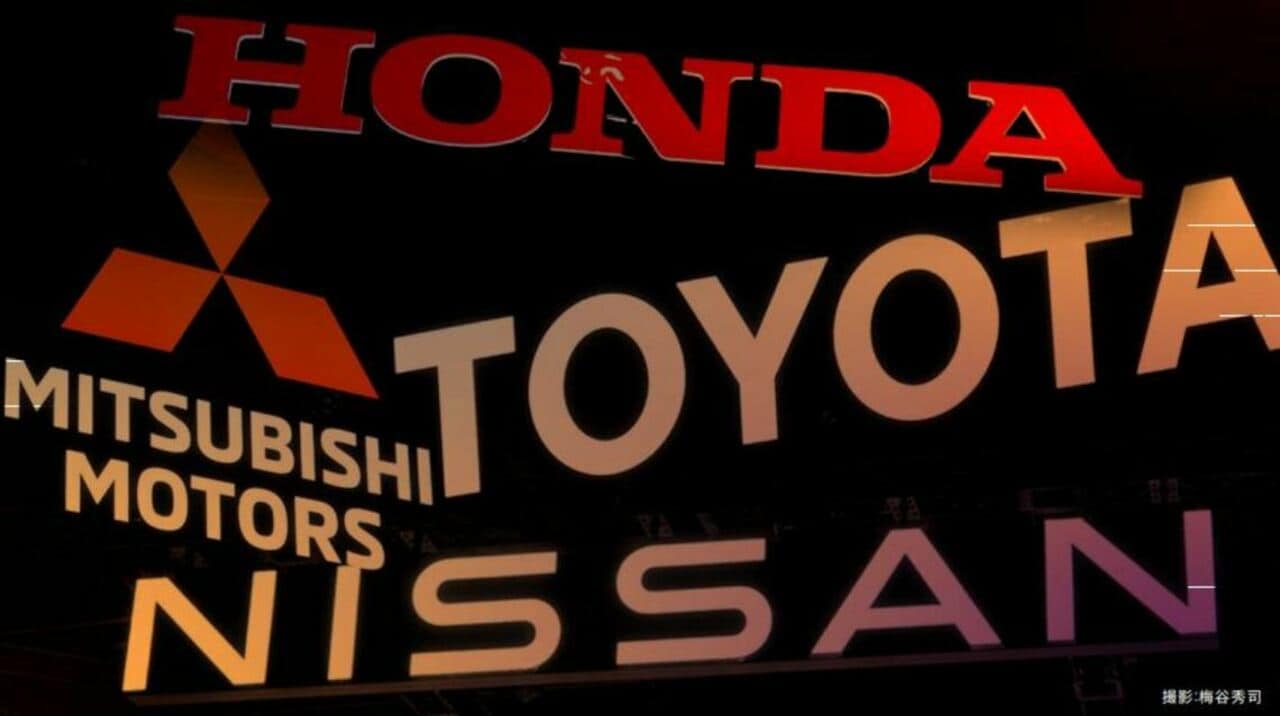
Japanese automakers face the risk of human rights violations in Taiwan. Local subsidiaries and partner companies employ migrant workers from countries such as Vietnam, the Philippines, and Indonesia.
In doing so, there is no end to cases in which workers borrow large sums of money from recruiters in their home countries, which has been raised as a human rights issue. The author, who is well-versed in global supply chain issues, has organized a research team and has been working to uncover the reality of the issues in Taiwan.
“I paid recruiters in Vietnam for this factory job with borrowed money. I had to pay it all before I left my country. I worked for almost a year before my debt was gone. Several of my colleagues are still indebted,” said Tuan, a Vietnamese worker.
“Some of us had to mortgage our family house or land so we could borrow money to pay for our jobs,” Tuan continues. “I left my family to earn more than I ever could back home. I must work hard for a long time before I return to them”. Tuan's real name has been changed for safety reasons.
Testimonies like this are not uncommon when speaking with migrants working as technical interns in Japan. It has been widely reported that many incur high debts to pay recruiters high fees, and some – but not all – are forced to endure harsh conditions.
However, Tuan left Vietnam to work in Taiwan.
Like Japan, Taiwan gradually opened its labor market to foreigners in the 1990s. However, contrary to Japan, low-skilled foreigners enter Taiwan as regular workers, not as technical interns. They are subject to the same labor regulations as local workers. Currently, 400,000 migrant trainees work in Japan, while 700,000 migrants are employed in Taiwan.
Forced labor risks in Taiwan
Tuan came from rural Vietnam to work in the industrial areas around Taipei, Taiwan's capital. His employer, the car parts manufacturer Lioho Machine Works, employs hundreds of migrants from Vietnam, Indo¬nesia, and The Philippines. We interviewed over a dozen workers who were of all three nationalities.
Everybody recruited from abroad said they paid recruitment agents for their jobs in Taiwan.
Vietnamese workers are paid over 730,000 JPY, which equals 2.5 years of Vietnam’s minimum wage. Filipino and Indonesian workers are paid from 190,000 JPY to 650,000 JPY.
"For many years, migrants have had to pay for their jobs," said our interviewees.
Many need to borrow from banks or money lenders to pay recruiters. Newer recruits are still working to pay off their debts.
“Even in Taiwan, I have to pay fees to the local labor broker. Every¬body pays”, said Tuan.
All interviewees said they were charged a monthly service fee by Taiwanese labor brokers. But none of them feel they get any service. This service fee amounts to two months of base wage per three-year contract. The fee is not shown on workers’ payslips.
Mechanisms to control by punishment
Workers also explained about fines and punitive behavior by management.
If workers break the dormitory's curfew or violate other rules, their IDs are confiscated. “We have to pay to get it back,” a Filipino worker said.
Workers are fined if they make mistakes in the factory.
“If we make mistakes of any kind, they call the Taiwanese labor broker. Then we are called to the office and asked to explain the mistake we made in front of the managers and the labor broker,” said an Indonesian worker. “I don't have the courage to complain. If I get fired, how can I repay my debt?”
Workers who take on high debts to pay for jobs may find themselves forced to endure harsh working conditions because their debts tie them to work.
According to the International Labor Organization (ILO), a specialized agency of the United Nations (UN), this is known as debt bondage and is considered a key indicator of forced labor. Confiscation of identity documents, threats, intimi¬dations, and abuses of vulnerability experienced by interviewees may also indicate forced labor.
Tuan and his colleagues' conditions are not uncommon among Taiwan’s migrant workers.
Many risk being trapped in forced labor. High recruitment fees charged by overseas recruiters, unavoidable fees charged by local intermediaries, confiscation of passports, restrictions on changing workplaces, and all the inherent vulnerabilities to further abuses have been widely reported by UN agencies, consultancies, experts, and media for many years.
Yet somehow, these issues remain overlooked by many foreign firms despite having done business with Taiwanese suppliers for decades.
Forced labor risks connected to Japanese car companies
Taiwan’s biggest industry is electronics, but its automotive industry is significant. There are around 3,000 car-related companies, accounting for 3% of Taiwan's GDP. Japan is one of the top importers of Taiwan-made auto parts and components, along with the US, the European Union (EU), and China.
As mentioned above, Lioho Machine Works (LMW) has been part of Taiwan’s car industry for decades. The company's migrant employees make car parts for Toyota, Mitsubishi, Honda, and Nissan vehicles. LMW is also a direct Ford Lioho and General Motors (GM) supplier.
All of these companies emphasize that their corporate policy is zero-tolerance towards forced labor. LMW has made car parts for these large companies' vehicles for years. So why are LMW's employees still at risk of forced labor? Are the car firms willing to address this issue? Will they practice their policies?
Toyota is investigating the matter. A Toyota spokesperson said: “Toyota's Human Rights Policy and Supplier Sustainability Guidelines clearly state that Toyota does not tolerate forced labor, which is often extracted through violent and threatful means or by entrapment of debt.”
LMW sells car parts to the Taiwanese car manufacturer Kuozui Motors, which is majority-owned by Toyota. Toyota said that it is “confirming through Kuozui the working conditions of foreign workers at LMW.”
Honda and Mitsubishi told our investigative team that they had asked their supplier, LMW, through their affiliated companies for confirmation and that LMW stated that there was no risk of forced labor for migrant workers.
(Added on March 6, 2024, at 12.00 pm: The description of Honda and Mitsubishi's responses at the time of initial publication has been revised as above)
Honda’s Supplier Sustainability Guidelines require suppliers not to use forced labor or otherwise violate human rights. A Honda spokesperson said: “We have contacted LMW to confirm the situation following your initial inquiry in October 2023 and have confirmed that the company's operations are in accordance with Taiwanese law and the afore-mentioned guidelines."
How will Mitsubishi and Nissan respond?
Mitsubishi Motors said that it "values the human rights and labor rights of our direct employees as well as those of our suppliers and partners" and explained that it is addressing the LMW incident through its Taiwanese partner. The company added that it is "currently developing a system to conduct human rights due diligence on business partners worldwide.”
Both Honda and Mitsubishi declined to say if they had tried to find out facts directly from LMW’s migrant employees besides asking their management.
Nissan said that “as a matter of policy, Nissan and Yulon Nissan do not comment on supplier relationships and labor structure. We comply with all applicable laws and regulations.”
The car parts supplier LMW did not reply to repeated requests for comments from our investigative team.
What will Ford and GM do?
In contrast to Japanese car brands' lack of commitment and transparency, American companies Ford and GM have pledged to address forced labor risks at their suppliers.
The two firms have publicly committed to eradicating recruitment fees in their supply chains and ensuring that workers are reimbursed when such fees are paid for jobs. (For the GM example, see this link.)
None of the Japanese automakers has made a similar pledge. Ford said that it “is investigating this matter and have also requested an independent review by a third party.”
“Upon learning of these allegations, we immediately contacted the supplier, and we intend to work with them until a resolution is achieved and to require independent verification and transparency,” GM said.
An LMW employee we contacted recently said, "Nothing has changed, and we have not received any refund.” Two other LMW employees told us the same in May 2024.
Tomoya Obokata, a professor of international human rights at the University of York in the UK and UN special rapporteur on modern forms of slavery, said: "Foreign workers in Taiwan would be less vulnerable to coercive situations if they didn’t become indebted for obtaining their job and a visa. It is important to pay attention to migrant workers’ multiple risks of falling into debt bondage or forced labor. All aspects of their working conditions must be assessed.”
Remove debts to remove bondage
A large part of the car production in Taiwan is carried out by affiliates or subsidiaries of Japanese companies. Honda Taiwan is a wholly-owned subsidiary of Honda. Toyota owns the majority (65%) of shares in Kuozui Motors. Yulon Nissan is minority-owned by Nissan (40%) and is part of the Yulon Group. Mitsubishi owns 14% of its partner, China Motor Corporation (CMC).
Do these companies also employ migrant workers? Do workers risk forced labor here, too?
The answer is yes. Migrant employees linked to Japan’s two biggest car companies have risked debt bondage for years. And some workers are still at risk.
According to our research, Kuozui Motors employs around 150 Vietnamese workers. Employees said management told them not to discuss recruitment issues with anyone outside the company.
According to sources, Viet¬namese workers are charged up to 650,000 JPY (about 4,500 USD) by recruiters for jobs, which is more than two years' minimum wage in Vietnam.
Most workers cannot afford to pay this amount without incurring high debt. Kuozui makes Toyota cars and exports car parts to Toyota-affiliated companies around the world, according to trade data from S&P Global Market Intelligence.
Toyota said that it is now working on the Kuozui Motors case and that " suppliers should not exploit employees with high recruitment fees and other costs that are considered unreasonable by international norms.” Kuozui Motors refused to disclose any information about its recruitment process.
However, in April, Toyota said, "We have confirmed that there are no unreasonable fees being imposed on migrant workers at Kuozui Motors, in alignment with local laws and societal norms." In other words, Toyota now finds it reasonable that migrant workers pay fees for jobs equalling more than two years' minimum wage in Vietnam.
Toyota's new statement contrasts not only its previous statement but also the code of conduct of the Responsible Business Alliance (RBA), of which Toyota is a member.
RBA is an industry coalition dedicated to responsible supply chains. RBA's code says that “Workers shall not be required to pay employers’ agents or sub-agents’ recruitment fees or other related fees for their employment. If any such fees are found to have been paid by workers, such fees shall be repaid to the worker”.
Former migrant employees of Honda Taiwan said they incurred high debts to pay the high fees for their jobs. Honda declined to disclose the nationalities of its current employees or its recruitment practice in Taiwan.
Mitsubishi refused to disclose if CMC, which makes Mitsubishi-branded cars in Taiwan, employs migrant workers. Yulon Nissan also declined to disclose information.
A chain reaction of hope for the future
There is also hope for the future. Our investigation has led some of the world’s biggest car brands – Toyota, General Motors, and others – to address forced labor risks at other Taiwanese suppliers, too.
“In addition to our engagement with the supplier (LMW), we have taken proactive steps to highlight these risks with other Taiwanese suppliers," said General Motors.
Toyota said that it had completed a survey of most of its Japanese suppliers regarding recruitment fees paid by technical interns and would now conduct a similar initiative in Taiwan.
“Taking advantage of our human rights due diligence efforts in Japan, we are confirming the situation of migrant workers in Taiwan and migrant workers working for Kuozui Motors,” Toyota said.
Other Japanese multinationals are already working with migrant workers to address forced labor risks abroad. However, it happens only after the damage is done and activists or journalists inform them.
Canon recently addressed forced labor risks at its Taiwanese branch after it had discussed a range of issues with its migrant employees. The company's migrant employees were reimbursed for recruitment fees in December 2022, and former employees were reimbursed in March 2023, said Canon, but declined to disclose the reimbursement amount.
Moving from voluntary responsibility to legal accountability
None of the issues uncovered at LMW, Kuozui Motors, or Honda Taiwan appear to be illegal in Taiwan. Japan has no laws requiring companies to address forced labor risks overseas.
In 2022, Japan’s government announced the “Guide¬lines on Respecting Human Rights in Responsible Supply Chains.” However, compliance is voluntary and not legally binding. Although the guidelines refer to corporate ethical responsibilities, they do not legally require companies to do anything. Japanese companies can declare a high level of ethical responsibility and yet avoid sanctions if they do not put those policies into practice.
Elsewhere in the world, such voluntary guidelines are being replaced with legally binding requirements to encourage large companies to avoid forced labor and other abuses in their overseas supply chains.
Countries like France and Germany have recently adopted laws requiring large companies to prevent human rights abuses in foreign supply chains or risk government sanctions.
Some laws in countries such as the USA, Canada, and Mexico allow authorities to stop imports at the border if they suspect the goods are made by forced labor. The EU is expected to adopt similar laws (the law was adopted in April 2024). South Korea and the Netherlands are also discussing bills.
Japan may leave its non-binding guidelines in place. However, even if there is no domestic progress in translating the guidelines into legally binding requirements to hold large companies accountable, foreign forced labor laws will likely hold Japanese companies accountable.
That movement has already begun. Companies not adapting to these changes may lose market access or risk fines and other penalties overseas. Doing nothing is not an option for much longer.



